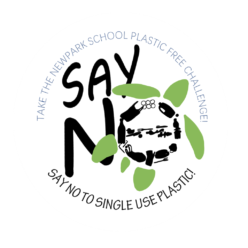Tasks
We assigned tasks based on personal skills as we luckily have a variety of skills amassed in our group. For example, poster work and digital design would be handled by an art student who experienced in graphic design and knowledgeable in said aspect, all funds are managed and accounted for by competent experienced business students as well as giving business presentations leading with advertisement. Research is carried out by everyone and everyone plays their part in gathering materials and technical aspects such as communication links and social media are handled by someone proficient in said aspects.
Below is a brief outline of the main tasks accomplished in the first month of our project.
- Established a social media presence (Facebook, Twitter, and Instagram)
- Kept records of all work we accomplished
- Took photos
- Took minutes at every meeting
- Kept drafts and poster designs etc.
- Established connections with environmental agencies (VOICE, Friends of the Earth) • Facebook page ( https://www.facebook.com/plasticouttathepark/ )
- Applied for a grant from PTA to effectively implement ban
- Conducted bin audit
- Spoke with management and caretakers about project – fully on board
- Designed and produced petition lobbying the government
- Conducted research on alternatives to plastic water bottles and lunch containers
- Created survey on pupils, parents and teachers
- Designed logo, posters and infographic
- Appealed to staff about project
- Carried out campaign – “I refuse single-use plastic”
- Created a policy ban on single-use plastic in Newpark
- Spoke to Spar and Centra about initiative
- Wrote to councillors
- Requested two pages spread in journals
- Met with LunchBox manager
Problems Encountered
Throughout our project, we have encountered problems that we have needed to overcome.
The biggest and most pressing problem was our lack of time. As we only officially met as a group in the week following the Christmas Break, we had a lot of work to get done in a very short period. Luckily, we had a dedicated and large group of transition year students willing to help out, so we were able to cut the workload by dividing it out amongst everyone – some taking on more than others but be it that way in any project. We calculated that we had roughly the best part of three weeks to get a majority of the work done before we all broke up for work experience. That meant that we had to have established the groundwork for our single-use plastic ban (how we were planning on implementing it, who would oversee it, having a draft policy statement written etc.). We also had to survey the entire school on their attitude towards disposable plastic, compile a sizeable petition, establish a social media presence, create the beginnings of a campaign, get key people on board and collate some sort of data on Newpark’s plastic consumption – a daunting task to say the least. Luckily, we had a hard-working group of students and some extremely dedicated teachers who stood up to the plate, accepted the challenge and managed to do all that and more in just under three weeks.
Another obstacle that we had foreseen from the preliminary stages of the project was getting various companies and people to support what we hoped to achieve. Most of food sold from our school canteen is sold in plastic containers, used once and then thrown away. Our local shops – Centra and Spar – obviously sell plastic water bottles and drink containers. We knew that for our initiative be successful, we had to have the backing of these organizations, but we also had to keep in mind that while we may have a certain agenda, at the end of the day, for each company to sustain itself it has to be making money – so we had to be reasonable.
We approached the managers from the various companies, and fortunately they were all incredibly enthusiastic and willing to help in any way they could. We had initially thought that Spar would be the most problematic source of single-use plastic, as Newpark has no say in the running of the business, they are in extremely close proximity to the school and we receive a large inflow of disposable plastic from them. But the manager couldn’t have been more accommodating and even did so much as come up with numerous ways in which they could help, such as offering a piece of fruit instead of a water bottle with meal deals and giving a discount to students who bought drinks in reusable cups. The LunchBox were fully supportive to but said that in order for them to sustain a plastic-free business they needed a bigger deli counter. We agreed that such apparatus was needed and sought funding from the PTA, who gladly obliged.
In terms of the running of the project, as we were not relying on external sources there were few hiccups in that respect. The only unanticipated problems we encountered were a result of miscommunication between fellow members and only related to the written aspects.
